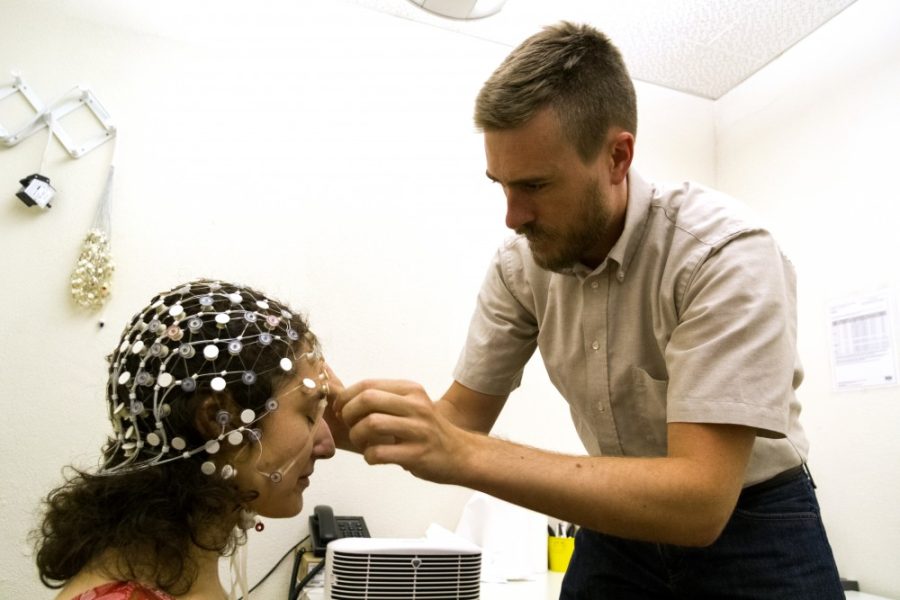Learning a second language can be a challenge, but learning about your own language can be an even greater one. Experiments in psycholinguistics being done at the UA aim to answer questions about how language is used and how it is represented in the brain.
Dr. Thomas Bever, a UA regents’ professor of linguistics, studies how language is organized in the brain.
“What I’m specifically interested in is trying to get more understanding of the genetic basis for language,” Bever said.
One of Bever’s experiments studied the organization of language in the brains of left and right-handed people. Bever’s study used an electroencephalogram, a device that records electrical activity in the brain, to map the neurological response of the subjects to different sentences. The results were then compared to the participants’ neurological responses to music. Researchers found that right-handed and left-handed people use different areas of their brain to process language.
Bever then used family pedigrees of the right-handed participants to determine how genetically likely these subjects were to be left-handed. Using this information, the study found that right-handed participants with left-handed family members may organize language more similarly to people who are left-handed.
According to Bever, left-handed people, and people who have left-handed family members, may be more prone to dyslexia, language impairment, schizophrenia and even asthma.
“We are planning some studies with dyslexia, and I hope we’ll soon be doing others,” Bever said. Studying the genetics of left-handedness could aid in the treatments of these disorders, he said.
Bever added that increased knowledge about the different ways in which left and right-handed people organize language in the brain could be used to help create more effective language recovery for patients who experience dementia, Alzheimer’s or strokes. These diseases sometimes cause patients to lose language function.
Bever’s study is just one of many linguistic studies taking place at the UA. According to Bever, there are many other studies on campus that aim to understand the relationship between language structure and cognition.
“A great deal of the work that goes on in this department is studying the structural properties of language,” he said.
One such research project is currently being conducted by Rachel Brown, a graduate teaching assistant in linguistics. Brown’s experiment will study the role of language structure the interpretation of language.
“I’m interested in ambiguous language and how we deal with that ambiguity,” Brown said.
The experiment studies linguistic interpretation of ambiguity by exposing subjects to various ambiguous phrases and measuring their reaction times, according to Brown. The study will then compare these reaction times to those of less ambiguous phrases.
Brown predicts that subjects will have slower reaction times when exposed to more complicated ambiguous phrases.
“Kind of think of your brain like a computer: if you overload your computer with having it do all these complicated things, it will slow down,” Brown said. “The same thing happens to your brain.”
Brown formulated the idea for the experiment with help from Bever. According to Brown, she plans to start research within the next few weeks and aims to have results by the end of the semester.
Follow Emily Hedges on Twitter.









